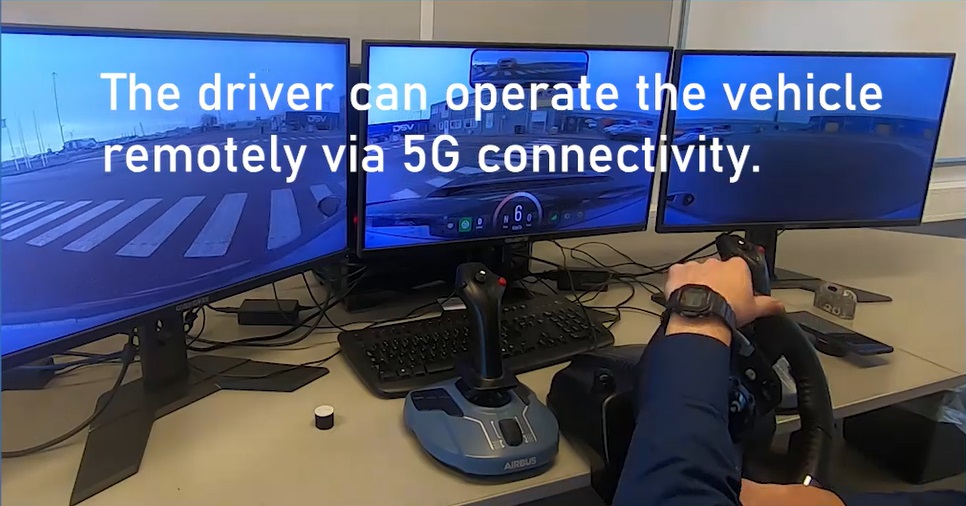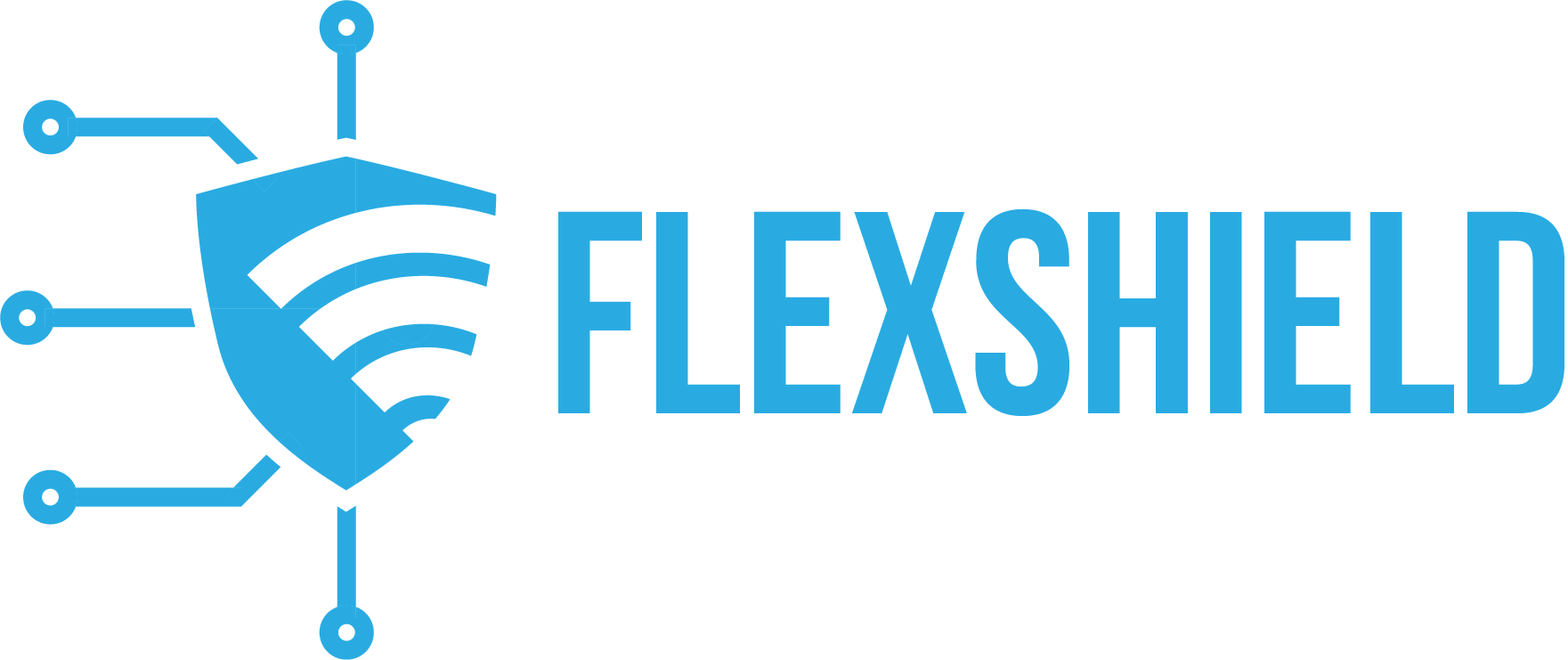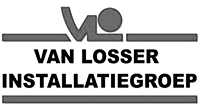Purpose of FlexShield
The ongoing digitalization in logistics requires a modern communication infrastructure characterized by higher bandwidths and stronger real-time requirements.
In research project FlexShield, new aspects and possibilities of real-time control for robot and vehicle counting processes in logistics are demonstrated, analyzed and implemented. As a concrete use-case, the 5G campus network of a logistics company, used for telecontrol of trucks, is being further investigated.
Here, resilience innovations are being developed and demonstrated that strengthen 5G-based infrastructure while ensuring continuous service for critical industrial applications such as teleoperation of logistics campus transportation systems.
These innovations focus on three concepts, namely:
- the redundancy of 3.7 GHz and mmWave 5G radio chains,
- the use of transmission mechanisms for time-sensitive networks (TSN)
- The use of hardware-based authentication and software-based integrity control mechanisms at runtime.
The focus of this project is at the intersection of remote teleoperation, cyber security and real-time operation over 5G networks.
Project approach
The project consists of two development and implementation phases embedded within the work packages (WP). For this purpose, an iterative “preparatory” phase is carried out within the four work packages (WP). Starting with a “preparatory” phase, for example, the rough concept in WP1 or the rough development of the use case in WP2. The development takes place in WP2 so that it can flow on as input to the next work package. The second development phase serves to further refine and adapt the development.
For the implementation-oriented work packages WP3 and WP4, a similar principle for integration and implementation applies. The first phase serves to secure basic functionalities, while in the second phase refinement and extension of these functionalities takes place based on the previous results of predefined functions and performance. Milestones are the completed results of the respective work packages.
FlexShield’s approach is based on intelligently controlled redundancy in the wireless 5G portion and the wired Time-Sensitive Networking portion to ensure service continuity, hardware-based security mechanisms and runtime integrity checking.
The results of the project are focused on campus 5G applications and can be fed into international standardization bodies in collaboration with other industry partners.
Contact V-tron:
Expected results
One goal is to optimize the overall process using 5G, eliminating manual work steps between storage, loading and unloading.
Competencies in planning, building and optimizing resilient 5G campus networks are being enhanced to make them available to other industries at industrial sites in Germany.
Modified processes are adapted to work and infrastructure conditions. Moreover, the long-term creation of new work profiles related to mobile robotics, tele-operation of vehicles and robots is planned. This is intended to focus on high-quality work activities in the long term and make operations in logistics more attractive.
Challenges
The use of driverless transport systems in logistics processes is currently limited to predefined routes. Tele-operation as a transmission technology for taking over critical activities by a tele-operator promises a promising further development, but poses several challenges.
A tele-operator can be used to run several vehicles such as trucks, forklifts or other industrial trucks by one person.
Although tele-operation relieves logistics workers and reduces the risk of accidents, it also presents challenges, as the use of tele-operated transportation systems depends on a cell phone infrastructure that is susceptible to attacks and quality of service.
The insights and experiences gained from the 5G network will be used to initiate the next generation of research activities on flexible integration of heterogeneous technologies into 5G networks.
Project partners:
FlexShield is a BSI (Bundesamt für Sicherheit in der Informationstechnik) funded research project
Duration from 31-12-2022 to 31-12-2024

























